
The notion of non-physician practitioners (NPPs) attempting to do radiologist-level work is a very slippery slope and what this author refers to as the “bargaining” stage of grief.

The notion of non-physician practitioners (NPPs) attempting to do radiologist-level work is a very slippery slope and what this author refers to as the “bargaining” stage of grief.

Catch up on the top radiology content of the past week.

Noting recent double-digit increases in health-care associated infections (HAIs) and potential vulnerabilities in radiology departments, this author emphasizes proactive preventive measures to protect patients and staff.
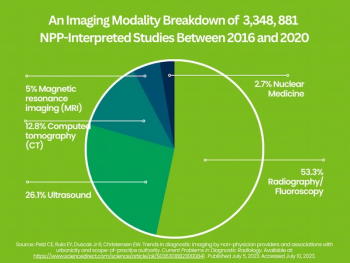
In a retrospective review of over 110 million imaging claims for patients with commercial insurance or Medicare Advantage, researchers noted key trends signaling significant increases in imaging billed by non-physician practitioners (NPPs).
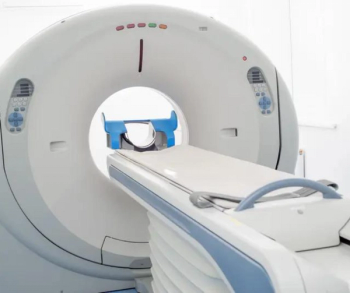
Superfluous pan scans have become standard for a vast majority of minor injury presentations in emergency room settings.

Catch up on the top radiology content of the past week.
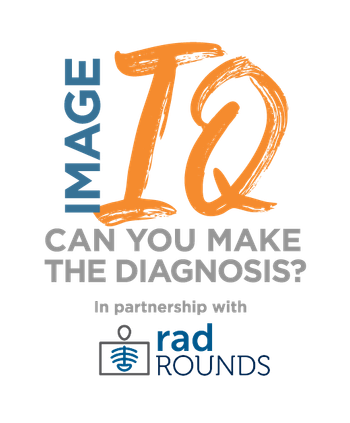
Review the case study and test your knowledge to make the correct diagnosis.
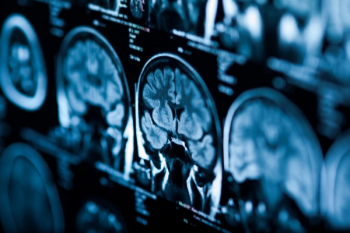
Reportedly receiving the first Current Procedural Terminology (CPT) III code from the American Medical Association (AMA) for artificial intelligence (AI)-enabled brain magnetic resonance imaging (MRI) software, Icometrix says its adjunctive quantification software can be utilized for diagnosis and assessment of conditions ranging from Alzheimer’s disease and epilepsy to stroke and dementia.

Catch up on the top AI-related news and research from the past month.
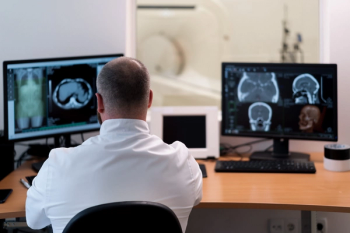
There are cases that warrant verbal communication with referring clinicians, but making that communication happen can, at times, be a challenging responsibility.
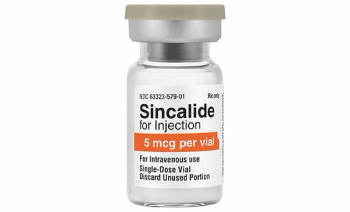
The injectable authorized generic reportedly facilitates gallbladder imaging as well as X-ray imaging of the intestinal tract.

Catch up on the top radiology content of the past week.
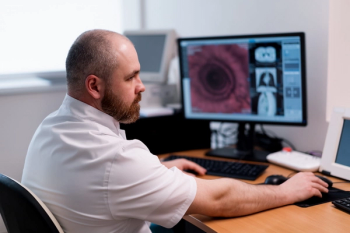
When reviewing radiographs, computed tomography (CT) scans or magnetic resonance imaging (MRI) scans, do you still turn to mnemonics every now and then to jog your short-term memory?

Catch up on the top radiology content of the past week.
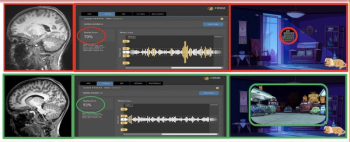
FIRMM-pix, a brain magnetic resonance imaging (MRI) software module recently launched at the International Society for Magnetic Resonance in Medicine (ISMRM) conference, reportedly employs visual biofeedback and gamification that coaches patients to stay still during brain MRI exams.
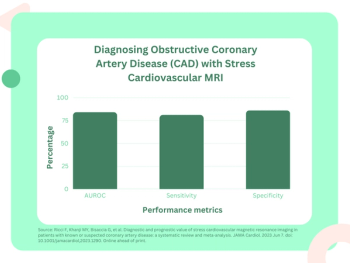
For the detection of obstructive coronary artery disease (CAD), stress cardiovascular magnetic resonance imaging (MRI) demonstrated a sensitivity rate of 81 percent and a specificity rate of 86 percent, according to a meta-analysis of 64 studies and data from 74,470 patients with stable chest pain.
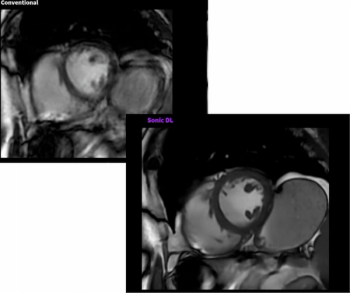
Powered by deep learning technology, Sonic DL reportedly facilitates the acquisition of cardiac magnetic resonance imaging (MRI) scans at 12 times the speed of conventional MRI systems.
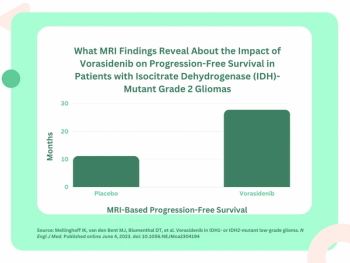
For patients with residual or recurrent grade 2 isocitrate dehydrogenase (IDH)-mutant gliomas, magnetic resonance imaging (MRI) revealed that daily dosing of vorasidenib, an inhibitor of mutant IDH1 and IDH2 enzymes, led to a median progression-free survival of 27.7 months in comparison to 11.1 months in a placebo group, according to new research presented at the 2023 American Society of Clinical Oncology (ASCO) Annual Meeting in Chicago.

Catch up on the top radiology content of the past week.
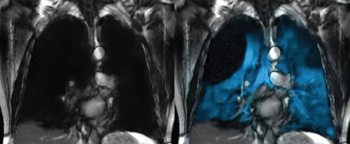
The combination of Philips’ MR 7700 multi-nuclei scanner with the FDA-approved Xenoview hyperpolarized Xenon magnetic resonance imaging (MRI) contrast agent may facilitate earlier diagnosis and intervention for patients with obstructive lung diseases.
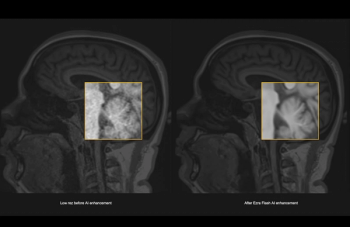
The artificial intelligence (AI)-powered Ezra Flash reportedly enhances magnetic resonance imaging (MRI) and enables significant reductions in scan times and costs for full-body MRI.

Catch up on the top radiology content of the past week.

Conditional use of full-body magnetic resonance imaging (MRI) is reportedly permitted for patients using any of the models for the remede® System, an implantable nerve stimulation therapy indicated for the treatment of adults with moderate to severe central sleep apnea.

Catch up on the top AI-related news and research from the past month.

Catch up on the top radiology content of the past week.